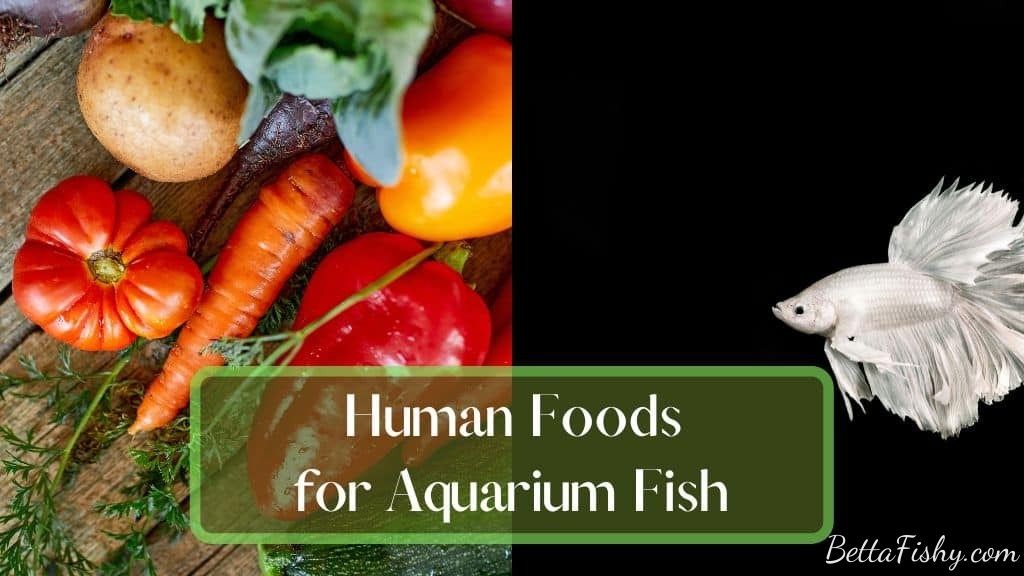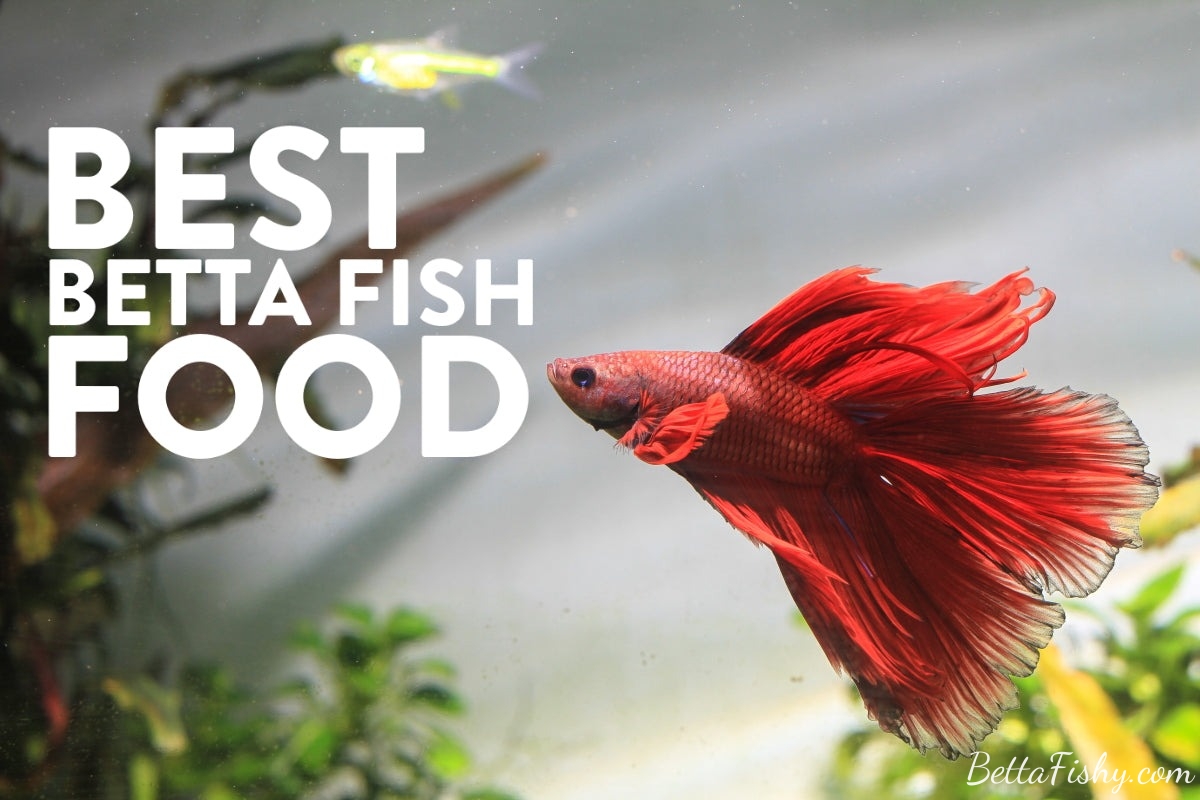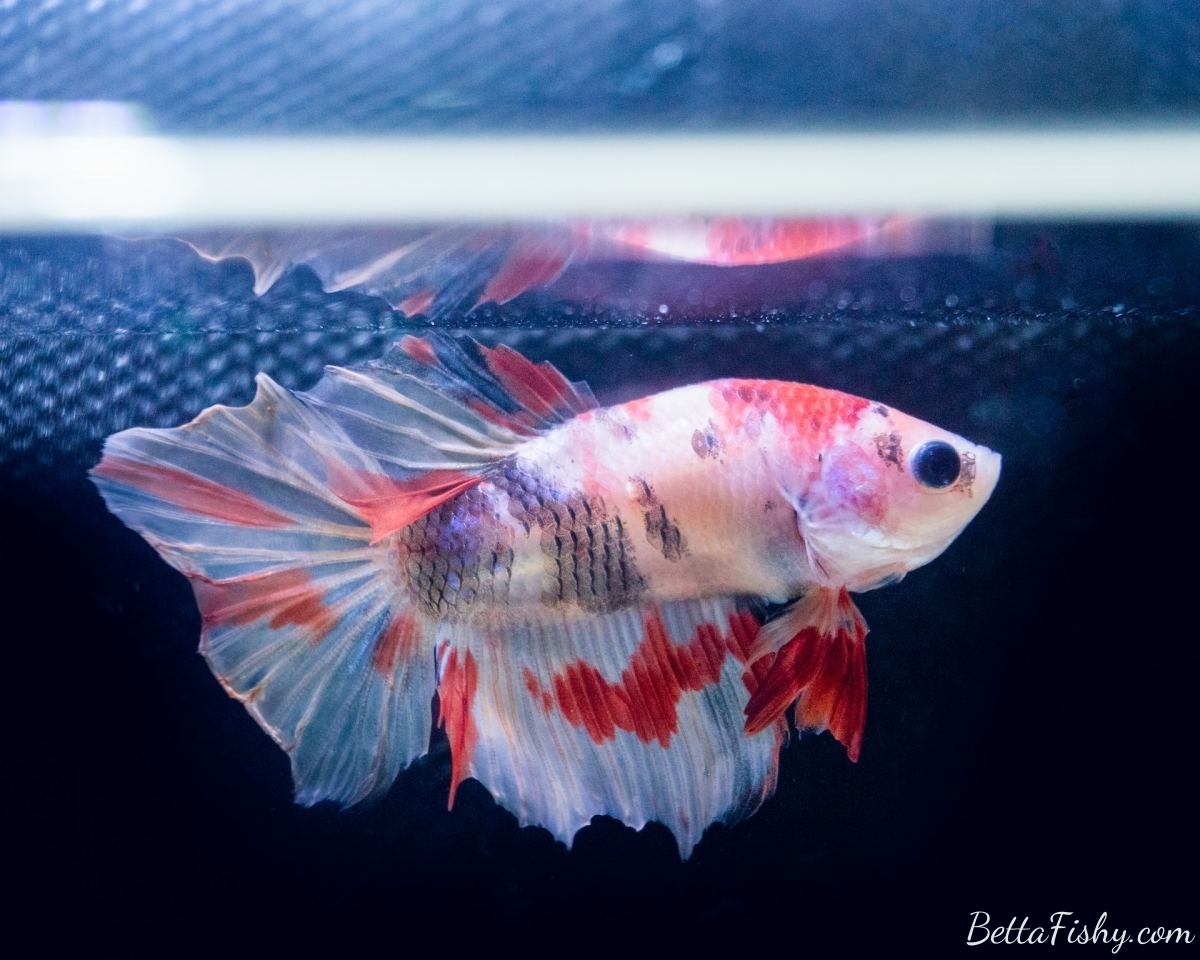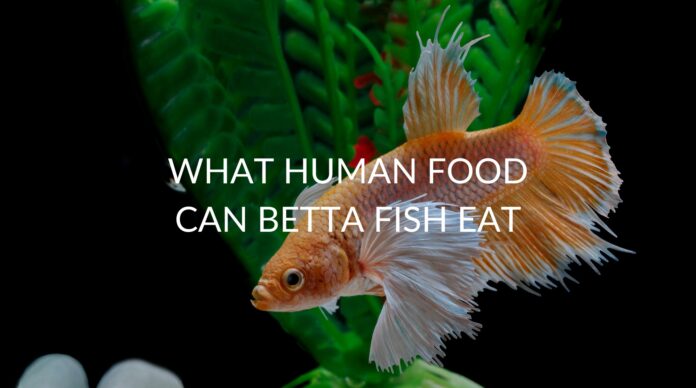Betta fish, also known as Siamese fighting fish, are popular aquarium pets known for their vibrant colors and flowing fins. While commercially available betta food is readily available, many aquarists want to offer their fish a more varied and enriching diet. This begs the question: What Can Betta Fish Eat of Human Food Safely? In this article, we will explore safe and nutritious options for bettas, as well as guidelines for preparation and feeding.
Explore That What Can Betta Fish Eat of Human Food
Bettas are omnivorous, meaning they can consume both plant and animal matter. However, their primary diet should consist of high-quality betta pellets or flakes. These provide the essential nutrients they need for optimal health and growth. Human food can be offered as a supplement, but it should not replace their main diet. Here are some safe and nutritious human foods that bettas can enjoy:
Vegetables:
- Peas: Peas are a good source of protein, fiber, and vitamins for bettas. However, they should be blanched or boiled before feeding to remove any harmful bacteria. To prepare, simply boil or microwave frozen peas for 30 seconds, then peel off the skin and cut into small pieces. Feed in moderation, as too many peas can cause bloating.
- Leafy Greens: Spinach, kale, and romaine lettuce are rich in vitamins and minerals. Blanch them before feeding and tear them into small pieces. This helps make the greens easier for bettas to eat and digest. Avoid feeding iceberg lettuce, as it has little nutritional value.
- Cucumber: Cucumber is a low-calorie treat that bettas enjoy. Slice it thinly and remove the seeds before feeding. Cucumbers are a great source of hydration for bettas, as they are mostly made up of water.

Fruits:
- Strawberries: Strawberries are a good source of vitamin C and antioxidants. Remove the leaves and stem before feeding. Cut into small pieces to make it easier for bettas to eat. Feed in moderation, as too much fruit can cause digestive issues for bettas.
Proteins:
- Bloodworms: Bloodworms are a popular treat for bettas, and they are high in protein. However, they should only be fed occasionally as they can cause constipation if overeaten.
- Brine Shrimp: Brine shrimp are another high-protein option for bettas. They can be purchased frozen or live. Live brine shrimp provide more nutrients, but frozen ones are more convenient. Avoid feeding freeze-dried brine shrimp, as they can expand in the betta’s stomach and cause bloating.
- Daphnia: Daphnia is a type of small crustacean that bettas enjoy. They are high in protein and also act as a natural laxative for bettas. Daphnia can be purchased live, frozen, or freeze-dried.
- Mosquito Larvae: While not a common human food, mosquito larvae can be collected from stagnant water sources and fed to bettas. They are rich in protein and can be a fun treat for your betta.
Preparing and Offering Human Food for Optimal Betta Health
When offering human food to bettas, it’s important to follow proper preparation and feeding guidelines to ensure their safety and health.

Preparation:
- Wash all fruits and vegetables thoroughly before feeding them to your betta.
- Boil or blanch vegetables to remove any harmful bacteria.
- Cut food into small, bite-sized pieces to make it easier for bettas to eat and digest.
- Avoid seasoning or adding any sauces to the food. Bettas cannot tolerate salt or spices.
- Remove any uneaten food after a few minutes to prevent it from spoiling and polluting the water.
Feeding:
- Offer human food as a supplement, not a replacement for their main diet.
- Feed in moderation. Overfeeding can lead to digestive issues and obesity in bettas.
- Rotate between different types of human food to provide a varied and balanced diet.
- Avoid feeding human food every day. Stick to 2-3 times a week to prevent overfeeding.
- Observe your betta’s behavior and adjust the amount of food accordingly. If they are not interested in the food or if it remains uneaten, decrease the amount next time.
Foods to Avoid
While there are many safe and nutritious human foods that bettas can eat, there are also some foods that should be avoided. These include:
- Processed or fried foods: These are high in fat and can cause digestive issues for bettas.
- Dairy products: Bettas cannot digest dairy products and they can cause bloating and other digestive problems.
- Bread: Bread has no nutritional value for bettas and can cause constipation.
- Meat: While bettas are omnivorous, they are not equipped to digest meat. It can also introduce harmful bacteria into the tank.
- Citrus fruits: Citrus fruits are too acidic for bettas and can cause digestive issues.
Unlocking the Benefits of a Varied Diet for Betta Fish

Enhanced Nutrition:
- Wider range of vitamins and minerals: Human food offers a broader spectrum of essential nutrients than pellets alone. Fruits and vegetables provide a rich source of vitamins A, C, and K, while cooked protein sources like boiled egg yolk and cooked chicken contribute valuable amino acids and fatty acids.
- Improved gut health: A diverse diet promotes a healthy gut microbiome, aiding in digestion and nutrient absorption. The fiber found in fruits and vegetables helps regulate digestion and prevent constipation.
- Boosted immune system: A variety of nutrients like vitamins A and C helps strengthen the immune system, making your betta more resistant to diseases and infections.
Increased Vitality and Activity:
- Enhanced energy levels: A balanced diet provides the necessary energy for bettas to thrive. The natural proteins and fats found in human food can help boost their energy levels and increase their overall activity.
- Improved fin growth and coloration: A varied diet rich in vitamins and minerals can contribute to vibrant fin growth and coloration. Beta-carotene found in fruits and vegetables can enhance their natural colors, making them more visually stunning.
- Reduced stress and boredom: A diverse diet can provide mental stimulation and enrichment for bettas. The act of foraging and exploring different food options can help reduce stress and boredom, leading to a happier and healthier fish.
Additional Advantages:
- Reduced risk of deficiencies: A varied diet helps ensure that your betta receives all the necessary nutrients, preventing deficiencies that can lead to health problems.
- Improved appetite and digestion: Offering a diverse range of food can sometimes stimulate appetite and improve digestion in finicky betta fish.
- Stronger bond with your pet: Preparing and offering your betta different food options can be a fun and rewarding experience, strengthening the bond between you and your pet.
Remember:
- Moderation is key; human food should only be a supplement to a high-quality betta pellet diet.
- Always properly prepare and wash human food before offering it to your betta.
- Observe your betta for any signs of digestive issues or discomfort, and adjust the diet accordingly.
Conclusion
By incorporating human food into your betta’s diet, you can contribute to their long-term health, vitality, and well-being. Remember, a varied and nutritious diet is essential for your betta to thrive and live a happy life in its aquatic home.


